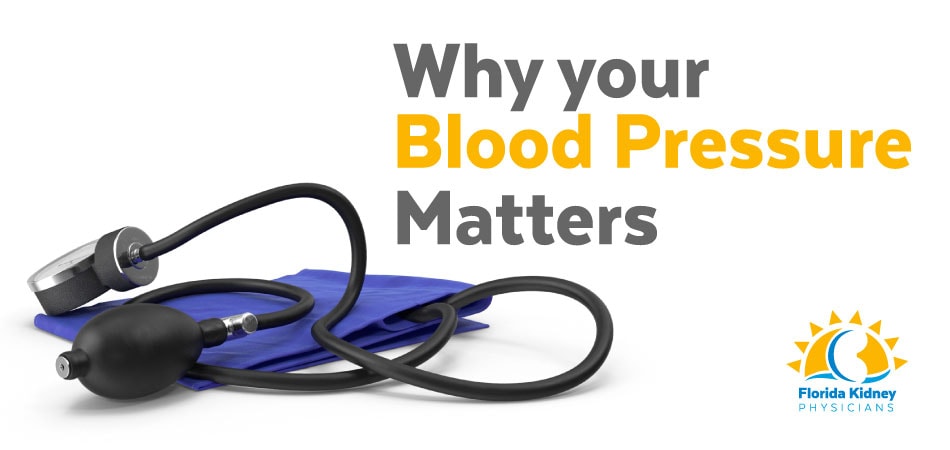And How To Lower Your Blood Pressure for a Healthier Life.
High blood pressure is the second leading cause of kidney failure. That’s right, the second leading cause. It is also a major risk factor for other health dangers like heart attack and stroke.
Almost half of the American population over age 20 has high blood pressure, also known as hypertension, and many don’t even know it.
Luckily, there are easy ways to find out your blood pressure level. There are also simple daily habits you can start to keep your blood pressure at a healthy level.
How do I know if I have high blood pressure?
To check your hypertension, you can get a quick, painless test at the doctor's office, or buy a testing kit from your local pharmacy so you can measure your level at home.
The test gives you two numbers:
- The first measures your systolic pressure, or the pressure in your arteries when your heart contracts, or beats.
- The second number is diastolic pressure, or the pressure when your heart is at rest.
Results are presented with a slash in-between the numbers, and spoken as the first number “over” the second number (for example, 120/80, or “120 over 80”).
A result of 140/90 mmHg or more is unhealthy and requires attention from a doctor.
High blood pressure should not be ignored. It means that your blood is pushing too strongly against your vessel walls, so the walls weaken and become prone to tears. In this way, the arteries by your kidneys start to weaken, which over time stops them from sending your kidneys the amount of blood they need.
Who is at risk for high blood pressure?
Check this list for the major risk factors for high blood pressure.
- Age: the older you are, the more probable it is that you could get high blood pressure. As we get older, our vessels lose some of their flexible quality, putting us at risk
- Family history: You have an increased chance of having it if your parents or close relatives have it or have had it in the past
- Gender: Before age 64, men are more likely to have high blood pressure. After age 65, the genders switch places and women are more likely to have it than men.
- Race: Black people tend to have higher rates of high blood pressure than other racial groups in the United States.
- Chronic Kidney Disease: Kidney health and blood pressure are strongly linked, so having kidney disease can cause high hypertension, and having high blood pressure can damage kidneys further.
Additionally, there is a wide variety of lifestyle choices that can affect your chances of getting high blood pressure. See the next section for how your daily choices can help you avoid this condition, keeping you healthy and strong.
How do I lower my blood pressure?
The good news is that you can improve your blood pressure through your daily habits, not only corrective medicine.
- Eat a healthy diet full of fresh fruits and vegetables.
- Avoid salty and fatty foods.
- Exercise and stay active. Daily walks greatly help.
- Don’t smoke, or begin a path to quitting now.
- See a doctor who specializes in high blood pressure
How can a doctor help?
Health care professionals are there to help you make a health plan involving lifestyle changes and any medications you may need. Doctors who specialize in hypertension, including nephrologists (kidney doctors), can help you make a personalized plan.
These specialized doctors are there to help track your progress, check in with you, and give you support as you take control of your health and make a positive change.
They can prescribe certain medications such as diuretics, beta blockers, and ACE inhibitors.
High blood pressure is not something to ignore. It’s a leading cause of strokes, heart attacks, and kidney failure--but you can get help today.
Don’t wait. Make an appointment today to control your blood pressure.

